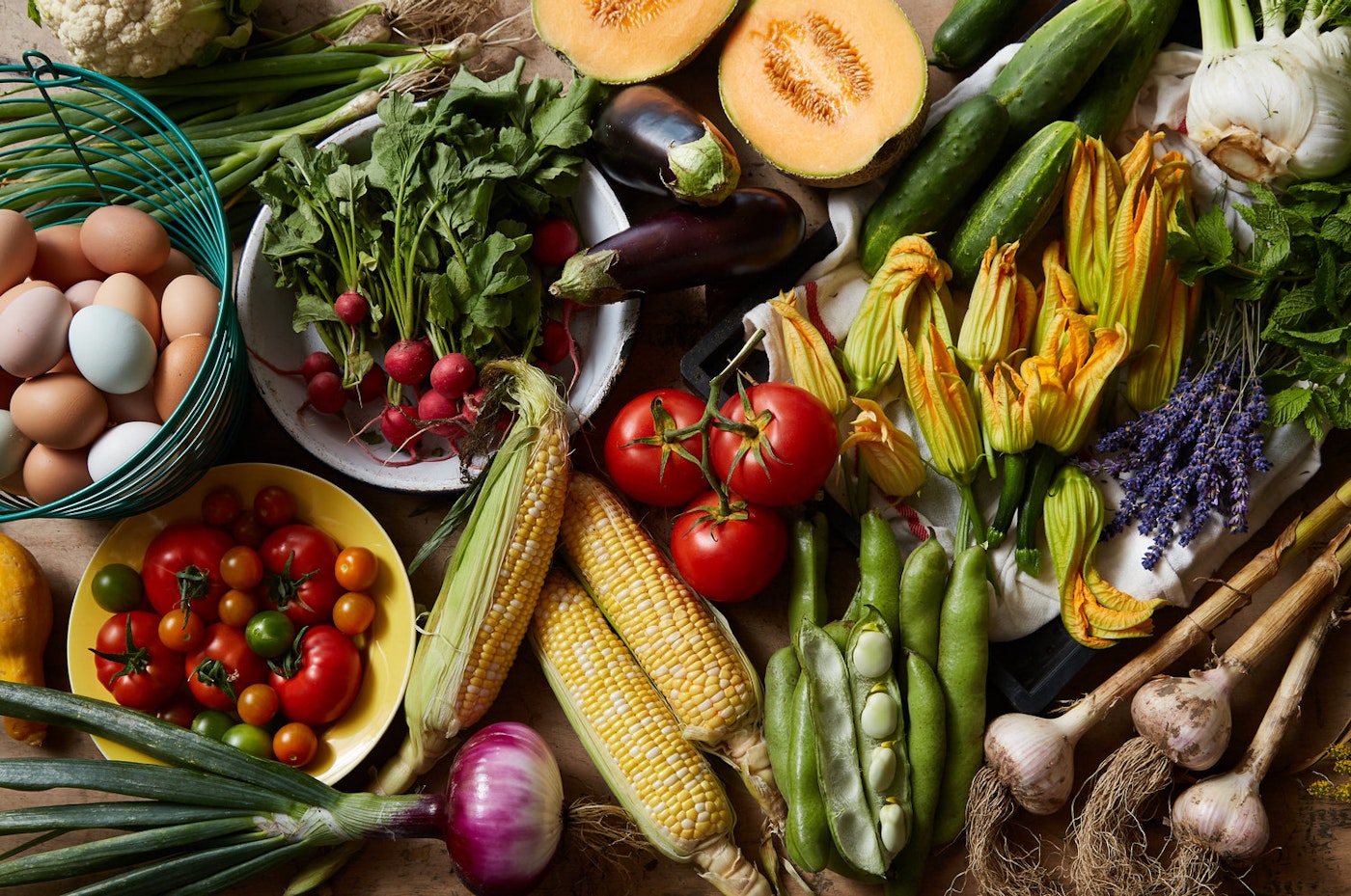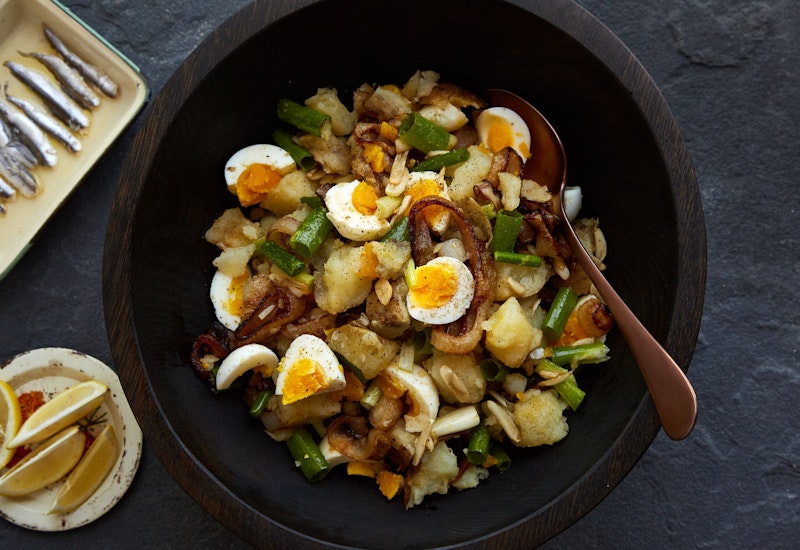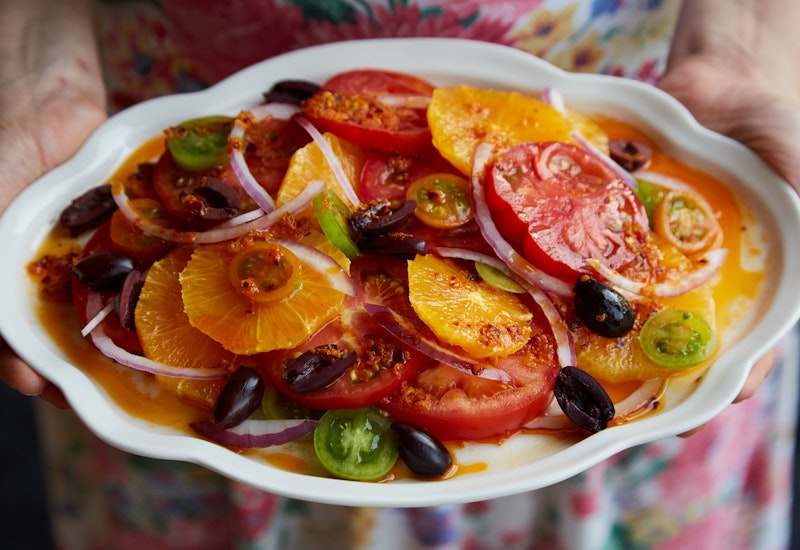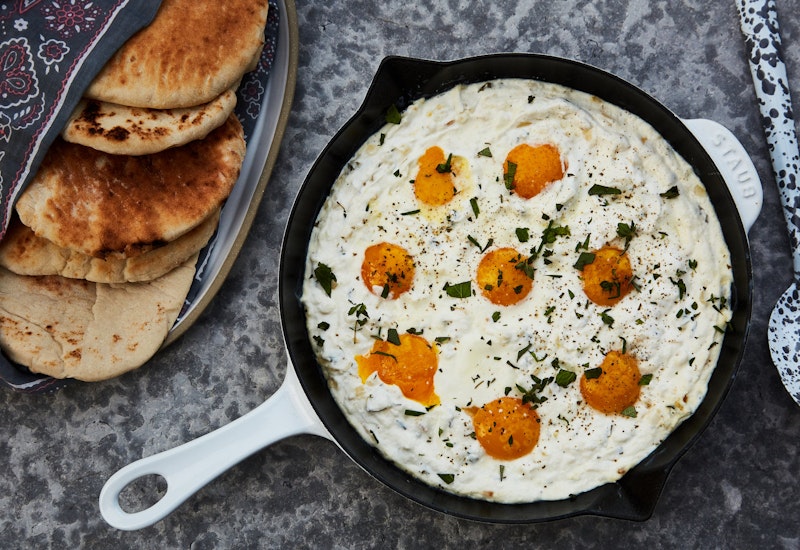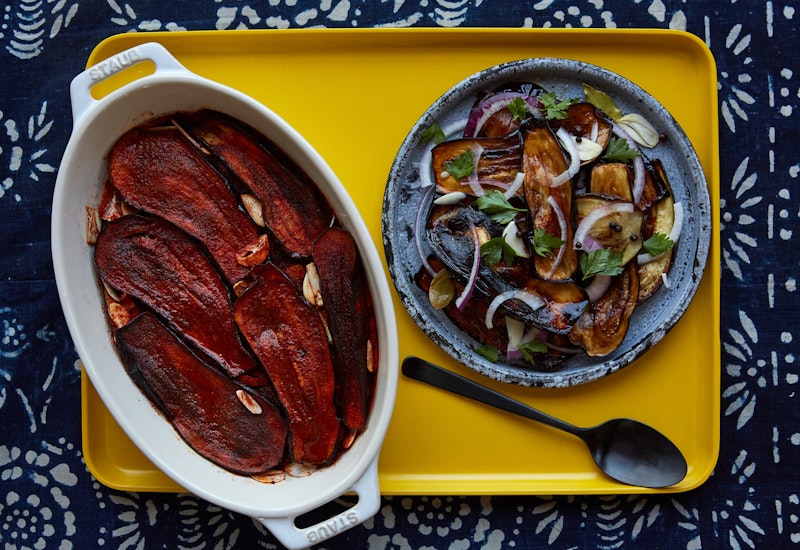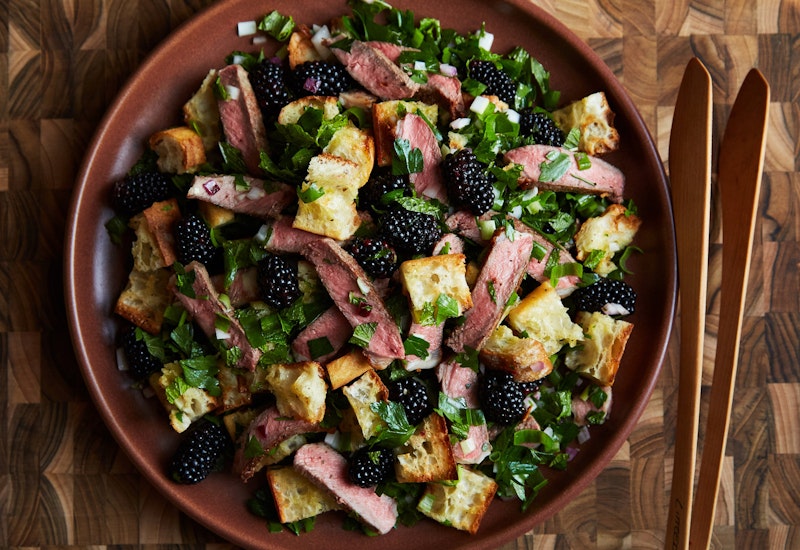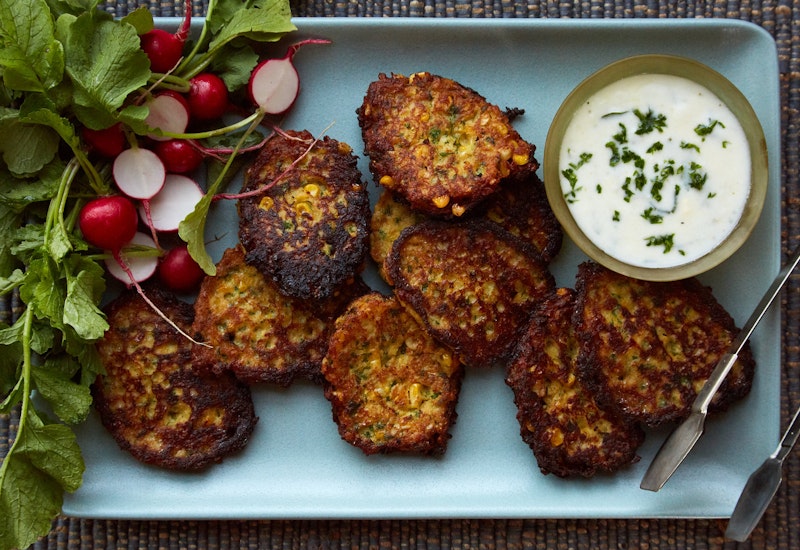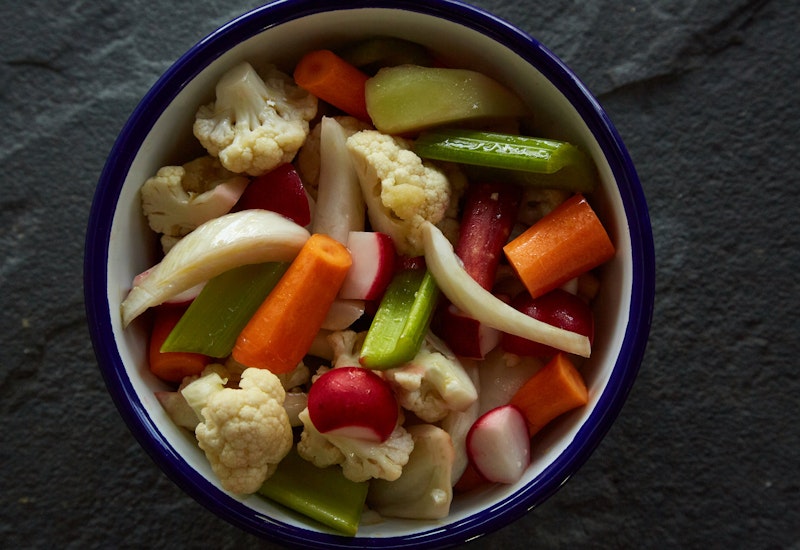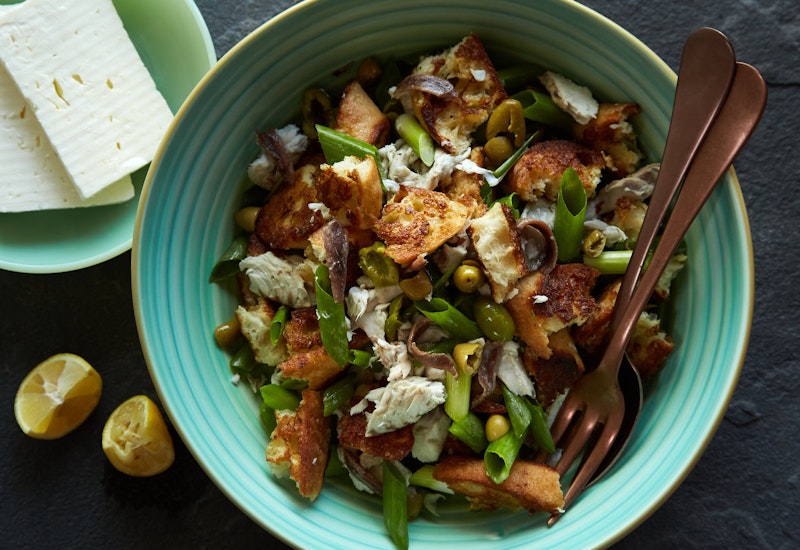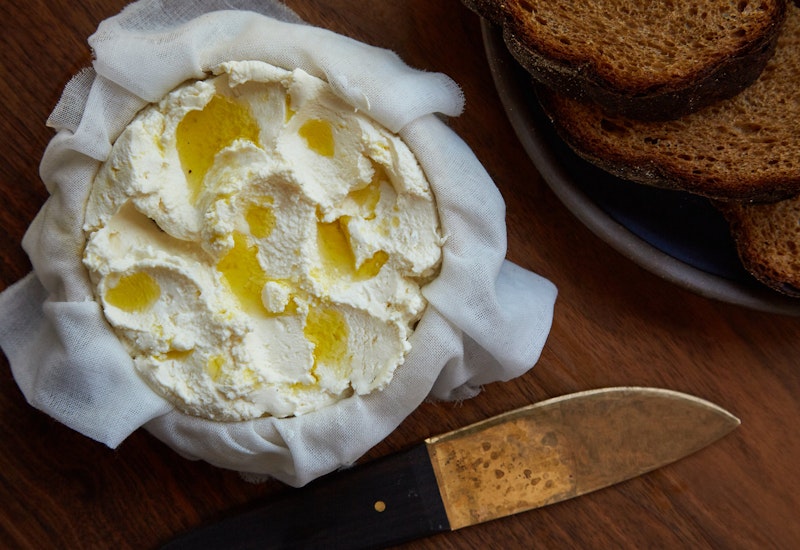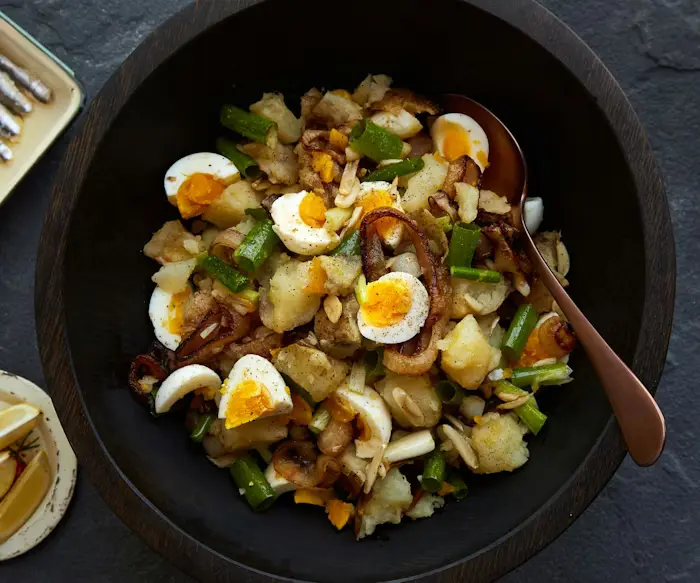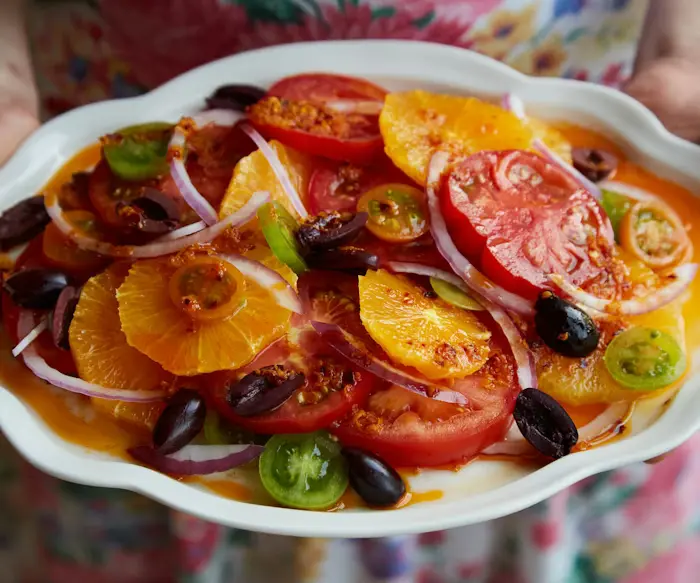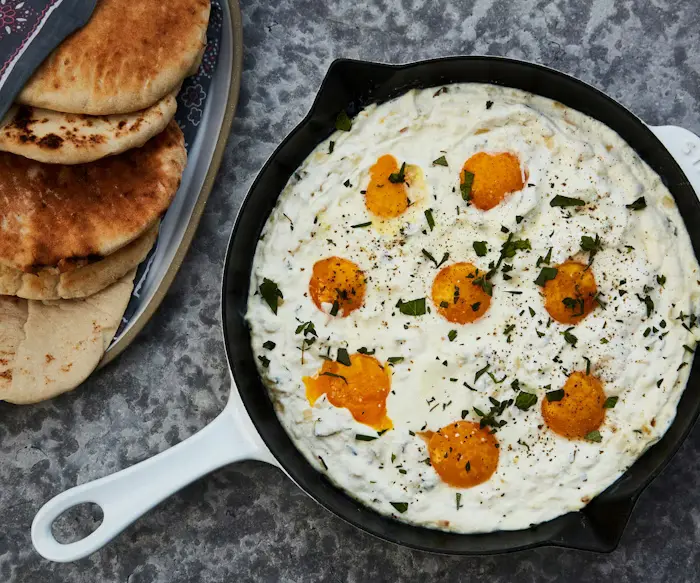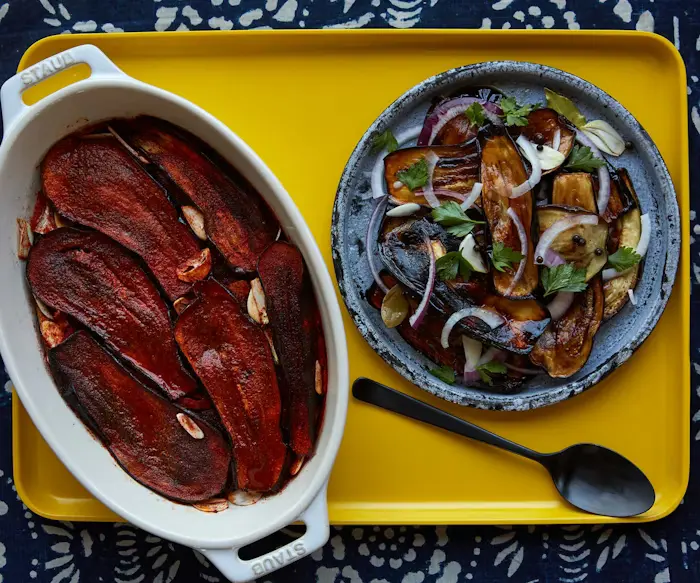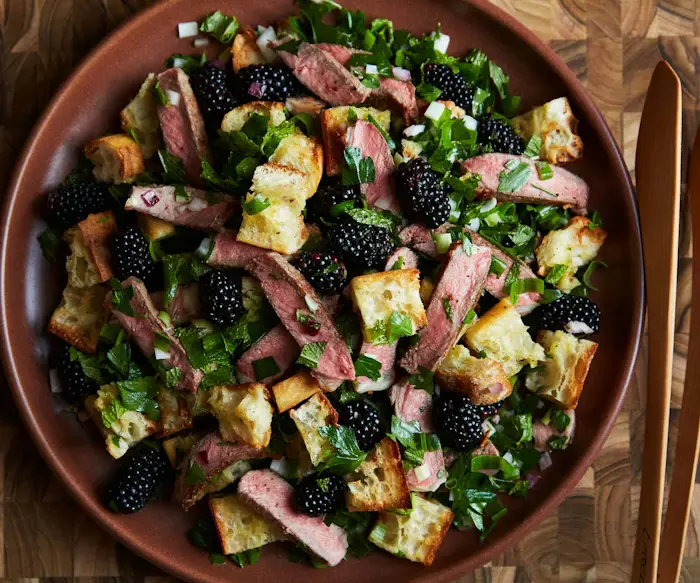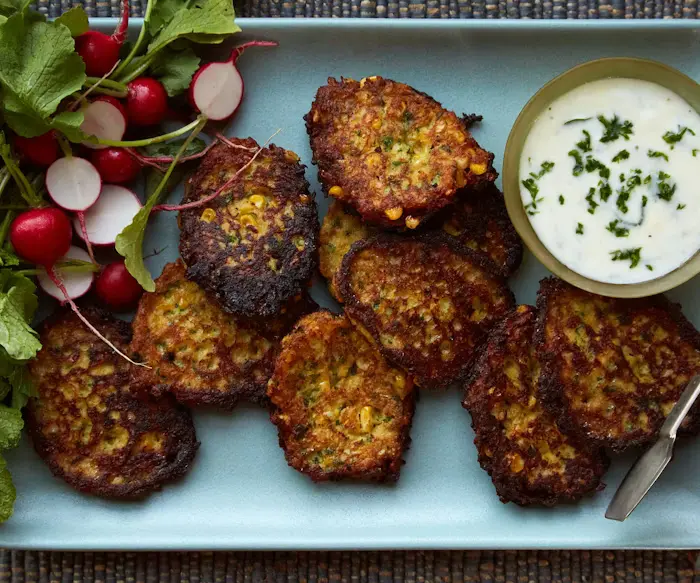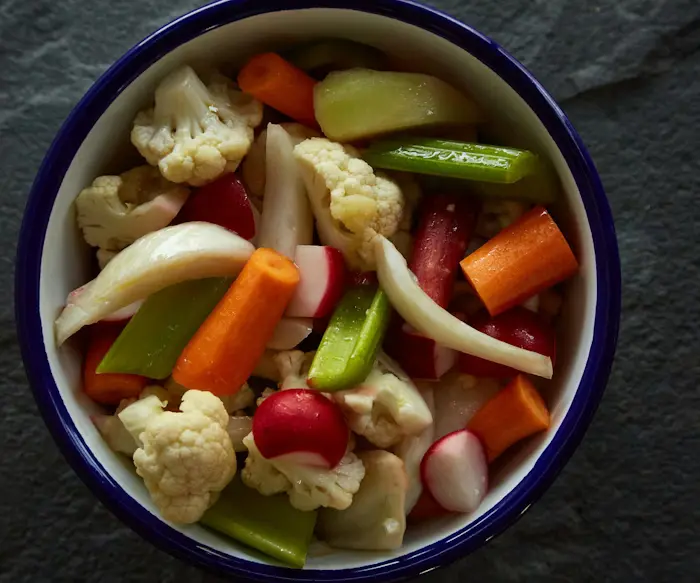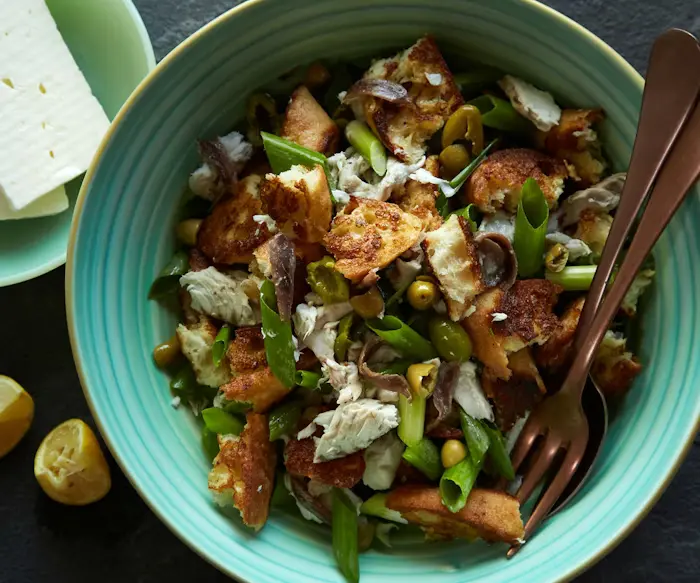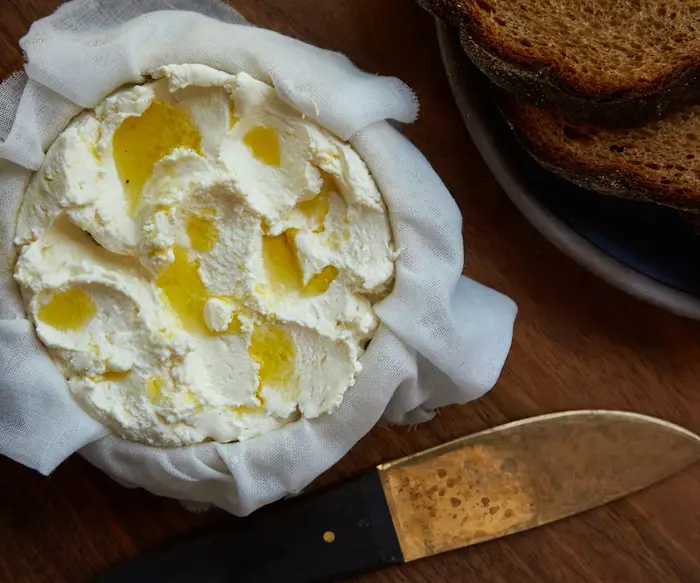Read more about Hedai Offaim in “Hedai Offaim’s Table Is Always Open — And Covered with the Bounty of Israel” and try his recipes for white shakshuka with labneh, eggplant in paprika and eggplant in vinegar, and steak and blackberry salad.
For chef and farmer Hedai Offaim, his late grandmother Rivka’s recipes are a calling. “I make her food when I feel that’s what I need…. When I get nostalgic bursts, I make everything I remember how to make from her kitchen”, he says. That includes dishes of poverty and tradition from the small shtetl called Piszczac in the east of Poland where she lived. Dishes like kreplach and fricasse, a dish of chicken organs and caramelized onions, and eyerlekh mit tzvible, or eggs with onion, a recipe from Rivka’s mother Toibe-Mahe.
Rivka carried it with her during World War II when she fled with her husband while pregnant from Poland east towards Russia, ultimately making it to Makhachkala on the Caspian Sea. When they reached Russia, Hedai’s grandfather was drafted and ultimately killed by the Nazis. “My father never met his father,” he explains. “They waited for him for many years.” But he never returned from the war. In 1948, Rivka and her son Yankele, Hedai’s father, who was just 8-years-old made Aliyah, building a home for themselves in Haifa.
Despite moving to Israel at the time of the founding of the country, Rivka chose not to assimilate. “She kept her diaspora characteristics. She was a Yiddishe mama,” Hedai explains. “She cooked food from home and she didn’t feel sorry or a need to apologize for not assimilating. She was the real thing.” And so was her cooking.
Hedai has visited Poland more than 40 times and taken several trips to Ukraine. “I’ve been learning and studying the Jewry of those areas for a long time,” he says. “I’ve created and eaten feasts in Poland.” His grandmother’s cooking still stands out. “This is the first taste that I remember,” he adds. He would sit in the kitchen with Rivka as she cooked, keeping her company and learning her recipes and stories as she folded delicate kreplach.
While Hedai’s preserved almost all of Rivka’s recipes exactly as she made them, he has updated the eyerlekh mit tzvible over the years. It was traditionally made with eggs still inside a just slaughtered hen, which are hard to find in Israel (and the U.S.) today. In their place, Hedai uses deeply golden yolks. And while he saves the fricasse and kreplach for dinners dedicated just to Rivka, the eyerlekh mit tzvible is the one crossover to his deep and wide repertoire of cooking that takes inspiration from the land of Israel. He serves it at brunch alongside white shakshuka, corn latkes, and salads, those meals embodying both his family’s past and present.
